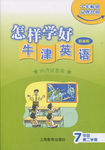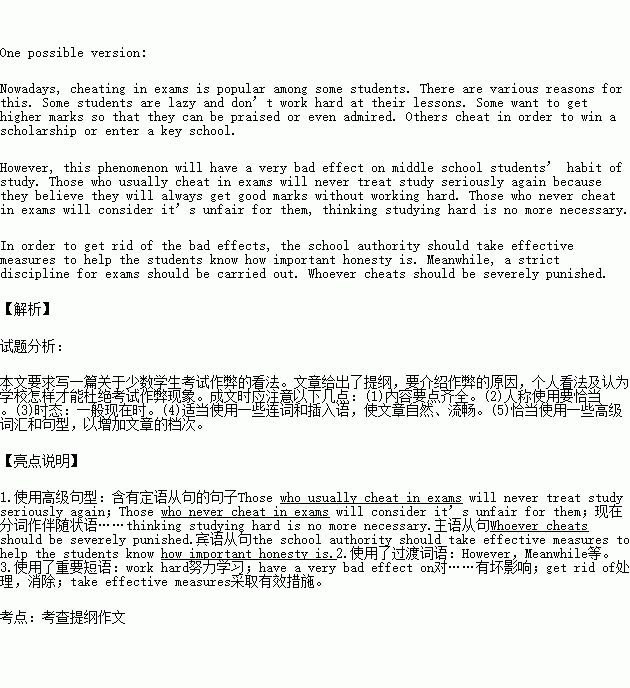题目内容
诚信是处世之本。但是在中学生当中,考试作弊、抄袭作业、欺骗家长和老师等现象屡见不鲜。请你用约100个词对中学生考试作弊现象进行议论,内容包括:
(1)中学生考试作弊的原因;
(2)你对考试作弊的看法;
(3)你认为学校怎样才能杜绝考试作弊现象。
Nowadays, cheating in exams is popular among some students.
_______________________________________________________________________________
_______________________________________________________________________________
_______________________________________________________________________________
_______________________________________________________________________________
_______________________________________________________________________________
_______________________________________________________________________________
_______________________________________________________________________________
_______________________________________________________________________________
_______________________________________________________________________________
_______________________________________________________________________________
 怎样学好牛津英语系列答案
怎样学好牛津英语系列答案
